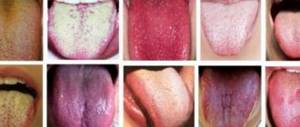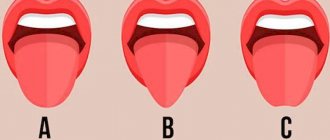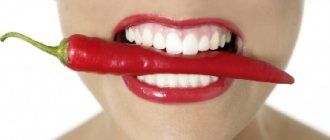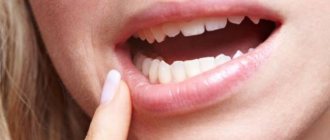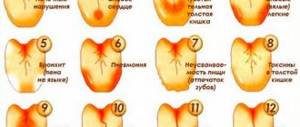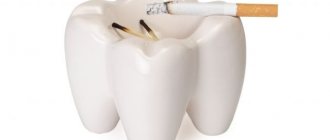A sour taste in the mouth is always the cause of the development of pathology. An unpleasant condition can occur in the morning, after eating, or during night sleep. Expectant mothers often experience discomfort. In most cases, a sour taste in the mouth becomes one of the signs of a malfunction of the digestive system.
This condition cannot be ignored, especially if it occurs regularly. It is important to consult a doctor in a timely manner, who, after carrying out appropriate diagnostic measures, will determine the cause of the uncomfortable condition and prescribe therapeutic treatment.
The appearance of a metallic taste
A metallic taste in the mouth can appear if there is blood in it: due to bleeding from affected gums. Discomfort is often a consequence of the reaction of saliva with dentures and braces. It is also diagnosed in case of poisoning with the following substances:
- mercury vapor;
- lead;
- arsenic.
A metallic taste in the mouth is observed in men and women when taking certain medications. These include medications with anti-inflammatory and anticonvulsant effects. A specific taste in the mouth also appears when there is bleeding from the esophagus.
Diagnostics
To get rid of the sour taste in the mouth, it is recommended to consult a therapist or gastroenterologist .
Only a qualified specialist will be able to identify the true cause of this unpleasant sensation and draw up an appropriate treatment regimen. An effective method for examining the condition of the gastric mucosa is fibrogastroscopy. Using a fiber optic tube equipped with a camera and lighting, which the doctor inserts into the stomach cavity, the mucous membrane is examined. The information is displayed on the monitor screen. According to the data obtained, an accurate diagnosis is established.
If such an examination does not reveal any abnormalities in the functioning of the digestive tract, then the patient is sent for examination to an endocrinologist and dentist .
If the source is poisoning, it is recommended to visit a toxicologist . The specialist will prescribe laboratory tests and refer you for examination of the gastrointestinal tract.
Manifestations of gastritis
With gastritis, a sour taste in the mouth often occurs after eating food. This is caused by increased release of hydrochloric acid. With gastritis, the contents of the stomach reflux into the esophagus. After this, it ends up in the oral cavity.
The presence of this disease can be assumed if the patient has the following symptoms:
- heartburn;
- belching;
- feeling of heaviness in the stomach area;
- pain in the abdomen.
A sour taste in the mouth may also indicate the presence of gastroesophageal reflux disease. With this pathology, food reflux into the esophagus is observed. The patient's condition worsens with overeating.
Vomiting with pyloric stenosis and chronic gastritis
Pyloric stenosis is characterized by a narrowing of the outlet leading from the stomach to the duodenum. Because of this, a mechanical barrier arises during the evacuation of gastric contents from its cavity. Waves of reverse peristalsis begin to form, which promotes the flow of digested food and gastric juice in the opposite direction.
Vomit may contain undigested food components, but most often they are of a liquid consistency. If this symptom appears, consultation with a surgeon is necessary, since the condition is somewhat life-threatening.
Chronic gastritis with hypersecretion is a chronic inflammation of the cells of the gastric mucosa, accompanied by increased acid production by parietal cells (in medicine it is more often known as chronic gastritis type B or gastritis associated with Helicobacter pylori).
This disease is accompanied by prolonged hunger pain. Vomiting with acid develops. Most often it manifests itself at night and usually brings some relief after removing the contents of the stomach. It worries patients for a long time and requires long-term observation and competent therapy.
Sour taste during pregnancy
During pregnancy, the body experiences hormonal changes. A sour taste in the mouth may be a consequence of a change in your usual diet. Women expecting a child often eat salty, spicy or sour foods. Oversaturation with such food can negatively affect the functioning of the digestive organs.
In this case, to eliminate the problem, a woman just needs to adjust her daily menu.
One of the reasons for an unpleasant taste in the mouth in the second half of pregnancy may be the pressure of the enlarged uterus on the digestive organs.
A constant sour taste in the mouth can also be observed in the third trimester of pregnancy. It appears due to the pressure of the uterus on the gallbladder and liver. In such a situation, the bitter-sour taste in the mouth becomes more pronounced after eating food.
Eliminating the symptom if the cause is the gastrointestinal tract
The determining factor in eliminating an unpleasant symptom is identifying the root cause - the pathology of the digestive tract, which caused a burning sensation behind the sternum and the reflux of acid into the food cavity.
If you consult a doctor in a timely manner and follow all his instructions, the result will be positive. If the disease becomes chronic, then there is a high probability of developing life-threatening conditions.
For information! You should not carry out treatment on your own and put off your visit to the doctor, since a sour aftertaste most often determines disorders in the digestive system.
A qualified specialist, according to the painful signs, makes a preliminary diagnosis and prescribes a series of examinations that will help clarify the extent of the inflammatory process and determine the risk stages of possible complications. The most effective methods include: FGDS, x-ray of the gastrointestinal tract, ultrasound of the abdominal organs.
Pathologies identified at the initial stage of their development are better treatable and in most cases can be eliminated by changing the diet. The patient must follow a therapeutic diet. If the disease is in an advanced form, then surgery cannot be avoided.
Dental problems
A sour taste in the mouth after eating occurs in the presence of pathologies of the oral cavity. These include: gingivitis, stomatitis, candidiasis, caries. Caries may be accompanied by a secondary bacterial infection.
An unpleasant taste in the mouth after chewing food can also be caused by increased bleeding of the gums.
If you have dentures in your mouth, an unpleasant taste occurs after eating food that contributes to their oxidation. You can reduce discomfort before visiting the dentist by rinsing.
If you have dental problems, in addition to a sour taste in the mouth, the following may occur: toothache, swelling in the gum area, increased body temperature when gumboil occurs.
Treatment
Medication
First of all, the doctor prescribes an antisecretory medicine to reduce the level of acidity in the stomach. The use of Gaviscon and Omez gives good results.
Gaviscon
Omez
To eliminate discomfort, Maalox and Almagel are prescribed. In some cases, the use of prokinetics is recommended to prevent the release of gastric contents into the esophagus.
Almagel
Maalox
Traditional methods
- Chamomile or sage decoction , which is used after each meal.
- A solution of 1 gram of mumiyo and 1 liter of boiled milk is taken for a month, 1 glass per 30 minutes. before meals. Number of courses – 3, with a break of 10 days.
- Using cinnamon (2-3 grams before meals) will help not only relieve pain, get rid of the sour taste, but also cleanse the kidneys.
- Mineral water with a high concentration of alkali will help normalize acidity The recommended dose is ½ glass of warm water without gas.
Sourish-sweet taste
Such a problem as a sour taste in the mouth has various causes: from hepatitis to diabetes. With an increased concentration of glucose in the blood, severe thirst additionally occurs. Patients suffering from diabetes mellitus often complain of poorly healing wounds on the body.
Discomfort may be caused by liver dysfunction.
An unpleasant taste in the mouth in women and men is often observed during a panic attack.
Hepatitis is also accompanied by decreased appetite and nausea. The patient's skin acquires a characteristic yellow tint.
An unpleasant taste in the mouth occurs when there is an inflammatory process in the area of the teeth or tonsils. The appearance of this pathology is also provoked by gum diseases. It occurs in case of intoxication with compounds that contain large amounts of fluoride.
Diagnostic methods
Making the correct diagnosis is the key to correct treatment. Remember that only a doctor should prescribe it to you and diagnose the disease. When visiting a medical institution with a similar complaint, you will be sent for the following studies:
- Blood analysis. This analysis will evaluate blood hemoglobin, the number of red blood cells, white blood cells, and platelets.
- Blood chemistry. This test helps detect increases in certain chemical components of the blood, including Iron, iron transport proteins and other compounds.
- X-ray for suspected diseases of the respiratory system.
- Computed or magnetic resonance imaging.
- Endoscopy of the esophagus and stomach if diseases are suspected in them.
- Bacteriological culture. If your doctor suspects a bacterial infection, he or she may order a culture to identify the pathogen.
In each specific clinical case, the combination of diagnostic methods is unique, although it corresponds to the general research schemes.
Specific salty taste
A salty taste in the mouth may be a manifestation of chronic inflammation of the salivary glands.
It is diagnosed with a systemic pathology such as Sjögren's disease. A salty taste is also observed in chronic rhinitis.
A sour-salty taste also occurs when drinking sweet carbonated water or coffee in large quantities.
A specific taste combined with a feeling of dryness in the mouth can be a symptom of dehydration. To eliminate fluid deficiency, it is recommended to drink enough clean water. If the discomfort is caused by an inflammatory process in the area of the salivary glands, you should undergo treatment by a dentist.
Prevention
To prevent a sour aftertaste in your mouth, you must:
- Eat less meat products, sour fruits and vegetables.
- Diversify your diet with dishes made from plant-based products.
- Drink enough natural yoghurts and kefir.
- Eat cottage cheese.
The taste of sour in the mouth is a very unpleasant sensation, which may be a manifestation of a specific disease. Therefore, when it appears, it is better to consult a doctor who will make the correct diagnosis and give appropriate recommendations.
White-yellowish coating on the tongue
A white-yellow coating on the tongue may indicate liver disease. A similar phenomenon occurs with cholecystitis and biliary dyskinesia. If bile stagnation occurs, timely treatment is necessary to avoid the formation of gallstones.
Some folk remedies against white plaque that occurs in the morning are listed in the corresponding table.
| Product name | Key Features | Usage diagram |
| Boric acid | The product helps fight white plaque. Boric acid is used to make a rinse solution | When preparing a solution, 5 ml of the product is diluted in 100 ml of warm water. After this, these ingredients are thoroughly mixed |
| Turmeric | Turmeric is known for its antiseptic properties | If there is white plaque in the oral cavity? A teaspoon of turmeric is mixed with a small amount of lemon juice. The finished product should have the consistency of a paste. The tongue is treated with it for 2-3 minutes. After this, the oral cavity is rinsed with warm water. |
| Salt | Salt helps remove dead particles from the surface of the tongue. The product has a pronounced antiseptic effect | If you have a white coating in your mouth, you should place a pinch of salt on your tongue. After this, clean it with a brush for 3 minutes. Then the oral cavity is rinsed with a sufficient amount of warm water. The procedure is performed twice a day |
| Propolis | The beekeeping product has pronounced antibacterial properties. If there is a white coating on the surface of the tongue, use alcohol tincture of propolis | When preparing a solution for rinsing, a few drops of propolis alcohol tincture are dissolved in 200 ml of water. |
A yellow tint at the base of the tongue may be one of the symptoms of jaundice. This causes a feeling of bitterness in the mouth. The patient often complains of vomiting and nausea.
Use of drugs
Depending on the root cause of the sour taste in the mouth after eating, a variety of medications are used. The main task of such medications is to restore the full functioning of the digestive organs. Drugs belonging to the group of antispasmodics help relax the muscles of the corresponding organs.
There are also special medications designed to restore intestinal motility. These include Domperidone, Motilium.
These medications help relieve the feeling of nausea. The slightly sweet taste in the mouth is reduced with the use of medications that improve liver function. In this case, hepatoprotectors can be used. These include Hologon, Allohol. If liver function is impaired, taking hepatoprotectors is also indicated:
- Ovesola;
- Karsila.
To reduce heartburn, use Almagel and Gasterin. Such medications have an enveloping effect. They reduce pain and burning.
In the presence of peptic ulcer, Omeprazole is used. In some cases, taking probiotics that restore intestinal microflora is effective. These include: Bifiform, Probifor.
Use of Ovesol
Ovesol is a biologically active food supplement. The product is endowed with a pronounced antispasmodic, anti-inflammatory and choleretic effect. Ovesol improves impaired liver function.
The tablets contain: oats, immortelle, mint. It is recommended not to use this dietary supplement during pregnancy. Ovesol is contraindicated in case of individual sensitivity to its components.
The frequency of use of tablets is twice a day. The average duration of treatment is three weeks. If indicated, two courses per year are recommended. When using Ovesol, side effects rarely occur.
The dietary supplement interacts well with other drugs. Ovesol can be used as part of complex therapy for violations of the process of bile secretion. In addition to tablets, the product is also made in the form of a solution with mint and rose hips, and tea in filter bags.
Taste disturbances in cancer patients
An exacerbation of taste (hypergeusia), a decrease in its sharpness (hypogeusia) or perversion, inversion of taste perception (dysgeusia) can occur in a variety of pathologies and act as symptoms of infectious, gastroenterological and other diseases. And recently, more and more works have appeared on dysgeusia in cancer patients.
According to statistics, 40–50% of cancer patients with nutritional deficiency have problems with impaired taste perception, often even before the start of treatment.5,6 During antitumor therapy, this problem can be aggravated: chemotherapy in 20–70% of cases causes taste changes , which can manifest themselves in a violation of the perception of salty and sweet, the appearance of a burning sensation in the mouth, bitter, chemical, metallic taste, which causes an aversion to food and ultimately reduces the amount of nutrition.7 The resulting nutritional deficiency is associated with worse tolerability of antitumor treatment, an increase in the frequency of and severity of side effects of therapy, postoperative complications. 8-11 Therefore, correction of dysgeusia plays an important role in providing adequate nutritional support, maintaining quality of life and social adaptation of cancer patients.7
Individual nutritional choices based on taste perception can significantly improve the quality of life in cancer patients. A unique solution for supporting cancer patients with taste inversions is Nutridrink Compact Protein sipping with a neutral, cooling fruit and berry and warming taste of ginger and tropical fruits. When developing the unique Nutridrink Compact Protein flavor palette, NV Nutricia was guided by the sensory characteristics of cancer patients with taste inversion.12 Thus, to activate the sensations of the trigeminal nerve and a more vivid perception of taste, patients are shown a product with the warming taste of ginger and tropical fruits, containing warming agents as in hot peppers; the use of a cooling fruit and berry taste can help reduce burning and pain in the mouth, and the neutral taste of sipping is suitable to reduce hypersensitivity and unpleasant taste sensations.
Project website
Hutton JL, Baracos VE, Wismer WV Chemosensory dysfunction is a primary factor in the evolution of declining nutritional status and quality of life in patients with advanced cancer. J Pain Symptom Manage 2007;33(2):156-65. DOI: 10.1016/j.jpainsymman.2006.07.017. 2. Bernhardson BM, Tishelman C., Rutqvist LE Taste and smell changes in patients receiving cancer chemotherapy: distress, impact on daily life, and self-care strategies. Cancer Nurs 2009;32(1):45-54. DOI: 10.1097/01. NCC.0000343368.06247.74. 3. Brisbois TD, Hutton JL, Baracos VE, Wismer WV Taste and smell abnormalities as an independent cause of failure of food intake in patients with advanced cancer—an argument for the application of sensory science. J Palliat Care 2006;22(2):111-4. 4. Hong JH, Omur-Ozbek P, Stanek BT et al. Taste and odor abnormalities in cancer patients. J Support Oncol 2009;7(2):58-65. 5. Yavuzsen T., Walsh D., Davis MP et al. Components of the anorexia-cachexia syndrome: gastrointestinal symptom correlates of cancer anorexia. Support Care Cancer 2009;17(12):1531-41. DOI: 10.1007/s00520-009-0623-5. 6. Spotten L., Corish C., Lorton C. et al. Subjective taste and smell changes in treatment-naive people with solid tumors. Support Care Cancer 2016;24(7):3201-8. 7. Gevorkov A.R., Boyko A.V. et al. Prevalence, clinical significance and possibilities for correcting disturbances of smell and taste perception in patients with cancer. Tumors of the head and neck. 9 (2), 2021, p. 53-65. 8. Arends J., Bodoky G., Bozzetti F. et al. ESPEN Guidelines on enteral nutrition: non-surgical oncology. Clin Nutr 2006;25(2):245-59. DOI: 10.1016/j.clnu.2006.01.020. 9. Andreyev HJ, Norman AR, Oates J., Cunningham D. Why do patients with weight loss have a worse outcome when undergoing chemotherapy for gastrointestinal malignancies? Eur J Cancer 1998;34(4):503-9. 10. Hill A., Kiss N., Hodgson B. et al. Associations between nutritional status, weight loss, radiotherapy treatment toxicity and treatment outcomes in gastrointestinal cancer patients. Clin Nutr 2011;30(1):92-8. DOI: 10.1016/j.clnu.2010.07.015. 11. Jagoe RT, Goodship TH, Gibson GJ The influence of nutritional status on complications after operations for lung cancer. Ann Thorac Surg 2001;71(3):936-43. 12. De Haan J et al. Impact of taste alterations during systemic anti-tumour therapy on the liking of oral nutritional supplements with adapted flavours. Annals of Oncology, 2021, 29 (suppl_8): viii603-viii640.
Partner Material: Nutricia
Following a strict diet
In order to reduce a strong sour taste in the mouth due to diseases of the digestive organs, you need to follow a strict diet. At the same time, dishes that increase the secretion of gastric juice are excluded from the diet. Foods that create additional stress on the pancreas are also contraindicated. Limit consumption of the following products as much as possible:
- strong brewed coffee;
- chocolate products;
- eggplant;
- cabbage;
- tomatoes;
- mushrooms;
- alcoholic drinks;
- fried and fatty foods;
- spicy seasonings;
- semi-finished products.
Following such a diet is especially important while expecting a child. The daily menu should include: boiled fish, steamed cutlets, vegetarian soups. Jelly, dairy products, and steamed omelettes are also healthy. The optimal number of meals is 4-5 per day.
Medicinal infusions
A bitter taste in the mouth can be eliminated with mint infusion. To do this, take 1 tablespoon each of mint and lemon balm. The medicinal mixture is poured into 0.4 liters of boiling water.
The container with the drink is wrapped in a warm towel. After 45 minutes, the drink is filtered. You need to take 100 ml of the product three times a day. The average course duration is 10 days. The medicinal infusion also helps with sleep disturbances.
An infusion of oregano and chamomile is prepared as follows:
- you need to take oregano, St. John's wort and chamomile in equal proportions;
- 20 grams of medicinal collection are poured into 450 ml of hot water;
- the resulting mixture is infused for 30 minutes;
- After the specified time, the drink is filtered.
Take 150 ml of oregano infusion twice a day. The drink is consumed 15 minutes before meals. The optimal course duration is at least 7 days. An infusion made from chamomile and St. John's wort relieves the symptoms of diseases of the digestive organs.
Decoction for rinsing
If you have gum disease, prepare a decoction based on oak bark. The product helps eliminate bad breath. When preparing the product, oak bark is mixed with sage.
The decoction contains 10 grams of sage herb and oak bark. These ingredients are pre-ground. After this, 20 grams of plant material are poured into 450 ml of warm water. The product is boiled over low heat for about 10 minutes.
After 10 minutes, the container containing the drink is removed from the gas stove. The product must be cooled and filtered. The drink is used for rinsing.
Mixture of honey and milk
Milk and honey are an effective combination. This means that a mixture of these ingredients can be used to reduce heartburn in the presence of gastritis. To do this, you need to heat 200 ml of milk over low heat. The temperature of the drink should be no more than 50 degrees.
After this, you need to add one teaspoon of honey to the milk. The resulting product is thoroughly mixed. The product is used daily: approximately 50 minutes after dinner. The average course duration varies from 14 to 30 days.

